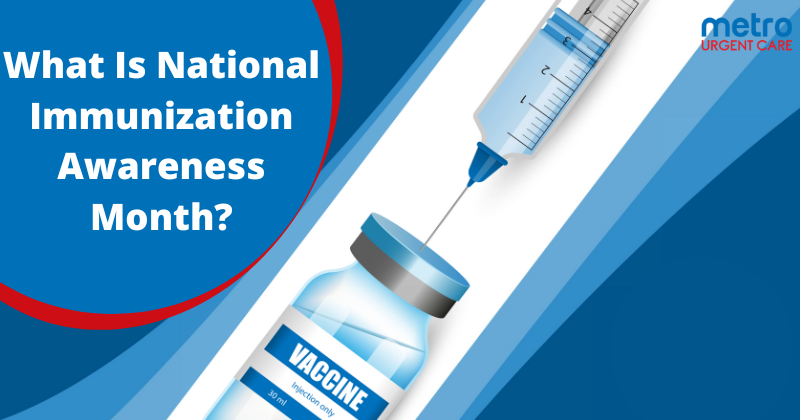


August is national immunization awareness month (NAIM) which emphasizes the importance of vaccination for people of all ages.
Many people skip or delay vaccinations for several reasons, including a hectic work schedule, fear of needles, and side effects. However, vaccines are crucial to protect you and others against viruses and bacteria. According to studies, flu vaccinations reduce the risk of catching the flu by 40-60%. Furthermore, immunizations prevent 2-3 million deaths every year currently and also prevented the Measles outbreak between 2000 and 2017.
It’s important to understand that by being unvaccinated, you are not only at risk of getting the disease but also becoming seriously ill and sometimes even developing fatal complications.
Some people think vaccines are important for those who have existing health conditions or compromised immune systems. However, vaccines are essential for everyone, from infants to children, adults, and seniors, despite their health conditions.
For example, unvaccinated children are more likely to develop serious complications from measles, whooping cough, and mumps. Unvaccinated pregnant women are vulnerable to diseases (such as Hepatitis B) that complicate their pregnancy or cause health issues to their unborn. Those who haven’t received their annual flu vaccination are easily susceptible to the influenza virus.
Though you may get a disease even when vaccinated, the vaccine decreases the likelihood of developing serious or fatal complications.
Some people are concerned about the safety of the vaccines and may skip them as a result. However, you don’t have to worry about the vaccines’ safety because the CDC and FDA test the vaccines before making them available to the public. Also, the CDC established that the Vaccine Adverse Event Reporting System (VAERS) in 1990 to monitor the potential safety issues of the US vaccines.
The VAERS system allows the public to report side effects or safety issues experienced following a vaccination. If any unusual report is received for a specific vaccination, the monitoring authority will work to detect any adverse effects or health risks from the vaccination. So, you can have peace of mind knowing that all vaccines are being continuously monitored by the CDC.
Vaccinations that you may need vary depending on your age, health complications, and whether you are pregnant or travel out of the country.
It usually depends on where you are traveling to. However, generally, you may need these:
Whether you fear vaccines or worry about the myths or misconceptions about vaccines that are on the internet, you can talk to your healthcare provider for better clarity. They will debunk any myths and address any concerns you may have. Also, they will explain the effectiveness of the vaccine and how crucial it is for your protection against specific diseases, helping you make informed decisions.
Remember, skipping vaccinations will put your and others’ health at risk. So, stay current on necessary vaccinations to protect you, your family, and the people around you.
If you need a flu shot or any urgent care, contact us today or visit us in Chicago, IL. At Metro Urgent Care, we have a team of experienced providers to get you the care you need.